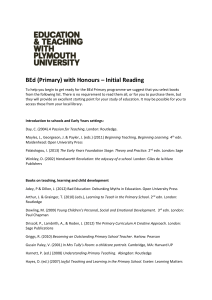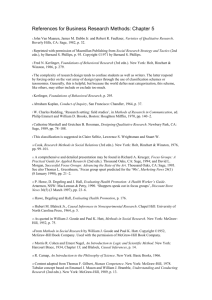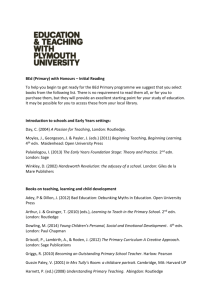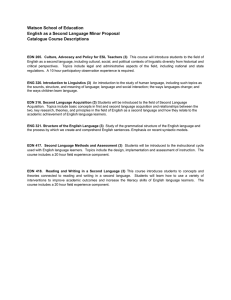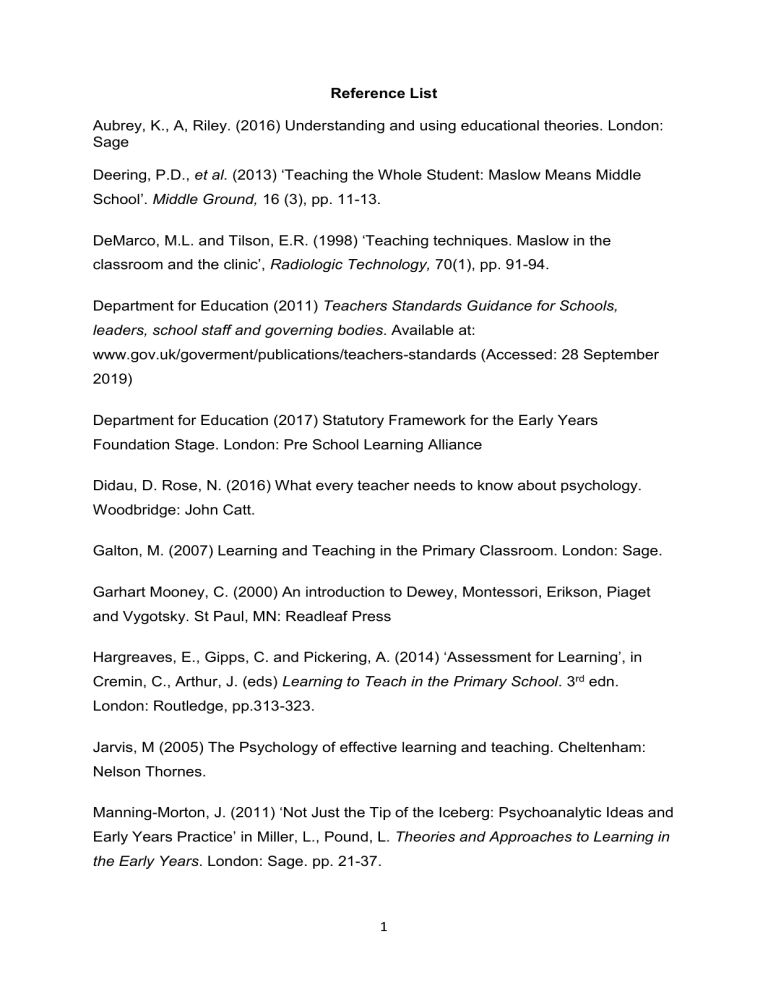
Reference List Aubrey, K., A, Riley. (2016) Understanding and using educational theories. London: Sage Deering, P.D., et al. (2013) ‘Teaching the Whole Student: Maslow Means Middle School’. Middle Ground, 16 (3), pp. 11-13. DeMarco, M.L. and Tilson, E.R. (1998) ‘Teaching techniques. Maslow in the classroom and the clinic’, Radiologic Technology, 70(1), pp. 91-94. Department for Education (2011) Teachers Standards Guidance for Schools, leaders, school staff and governing bodies. Available at: www.gov.uk/goverment/publications/teachers-standards (Accessed: 28 September 2019) Department for Education (2017) Statutory Framework for the Early Years Foundation Stage. London: Pre School Learning Alliance Didau, D. Rose, N. (2016) What every teacher needs to know about psychology. Woodbridge: John Catt. Galton, M. (2007) Learning and Teaching in the Primary Classroom. London: Sage. Garhart Mooney, C. (2000) An introduction to Dewey, Montessori, Erikson, Piaget and Vygotsky. St Paul, MN: Readleaf Press Hargreaves, E., Gipps, C. and Pickering, A. (2014) ‘Assessment for Learning’, in Cremin, C., Arthur, J. (eds) Learning to Teach in the Primary School. 3rd edn. London: Routledge, pp.313-323. Jarvis, M (2005) The Psychology of effective learning and teaching. Cheltenham: Nelson Thornes. Manning-Morton, J. (2011) ‘Not Just the Tip of the Iceberg: Psychoanalytic Ideas and Early Years Practice’ in Miller, L., Pound, L. Theories and Approaches to Learning in the Early Years. London: Sage. pp. 21-37. 1 Muijs, D., Reynolds, D. (2011) Effective Teaching Evidence and Practice. 3 rd edn. London: Sage Noltemeyer, A., et al (2012) ‘The relationship among deficiency needs and growth needs: An empirical investigation of Maslow’s theory’, Children and Youth Services Review, 34 (9), pp 1862-1867. Petty, G. (2009) Evidence Based Teaching: A Practice Approach. 2nd edn. Cheltenham: Nelson Thornes. Prichard, A. (2009) Ways of Learning: Learning theories and learning styles in the classroom. Oxon: Routledge. Pritchard, A., Woollard, J. (2010) Psychology for the classroom: Constructivism and Social Learning. Oxon: Routledge. Schoon, I., et al. (2010). Children’s language ability and psychosocial development: A 29-year follow-up study. Paediatrics, 126, 1, pp. 73-80. Schunk, D. (2014) Learning Theories an Educational Perspective. 6th edn. London: Pearson. The National Curriculum (2013) The National Curriculum in England: Key Stages 1 and 2 framework document. England: John Catt Educational Ltd The Special Educational Needs and Disability Code of Practice (2015) 0 to 25 years. Available at: https://www.gov.uk/government/publications/send-code-of-practice-0-to25 (accessed 28 September 2019) Vygotsky, L, S. (1978) Mind in Society: The Development of Higher Psychological Processes. London: Harvard University Press Whitebread, D. (2010) ‘Play, Metacognition and self-regulation’ in Broadhead, P., Howard, J., Wood, E. (2010) Play and Learning in the Early Years. London: Sage, pp 161-176 2
